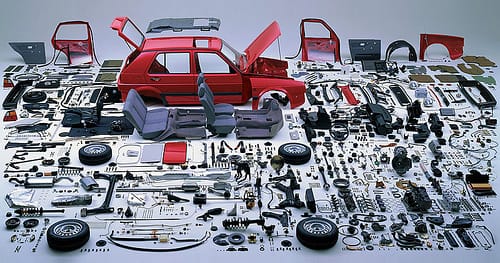
Auto makers and parts manufacturers announce new recalls daily. The majority of these announcements concern minor defects, but others demand immediate action. For instance, dozens of people have died and hundreds of others have suffered injuries due to poorly designed air bags produced by Takata and installed in tens of millions of U.S. vehicles for more than a decade.
So recalls matter. The National Highway Transportation Safety Administration in 2015 looked at how often defective equipment was to blame for causing a crash that left someone injured or dead. Using somewhat out-of-date data from the National Motor Vehicle Crash Causation Survey conducted between 2005 and 2007, NHTSA researchers estimated that during the survey period, about 44,000 serious and fatal wrecks resulted from defects in tires and wheels; brakes; steering, suspension and transmission systems; and “other” essential equipment and systems.
LEARN MORE
- How Does a Virginia Personal Injury Lawyer Handle a Product Liability Lawsuit?
- Millions of Recalled Vehicles Remain on the Road Without Ever Getting Repaired
- A Virginia Car Crash Attorney Discusses Single-Vehicle Accidents Caused by Defective Equipment
The real problems is not that defects exist; no manufacturing or quality assurance process can operate perfectly in perpetuity. The much more serious threat comes, first, from drivers who do not take their cars and trucks in for repairs when they learn of recalls. The other ever-present danger comes from companies that delay or fail to adequately announce recalls.
Victims of drivers who ignore recalls can file personal injury or wrongful death insurance claims just as if the at-fault driver had run a red light or refused to yield right of way while changing lanes. Failing to perform proper maintenance on one’s vehicle constitutes negligence, and negligent drivers have legal obligations to compensate and pay damages to the people they injure or kill.
When a wreck happens due to a vehicle or equipment defect that is unknown to the driver, victims have grounds for filling product liability claims against the responsible company. Manufacturers have legal duties to make and sell safe products, to warn users about known risks from their products, and, when it comes to cars and trucks, to offer fixes for identified defects.
In some cases, car crash victims can file insurance claims against both a negligent driver and product liability claims against a negligent company. As a Virginia personal injury lawyer and wrongful death attorney, I review crash reports and hire experts to inspect vehicles to determine if this is possible. Every person and organization that could and should have acted to prevent harm to my client deserves to be held accountable.
EJL








